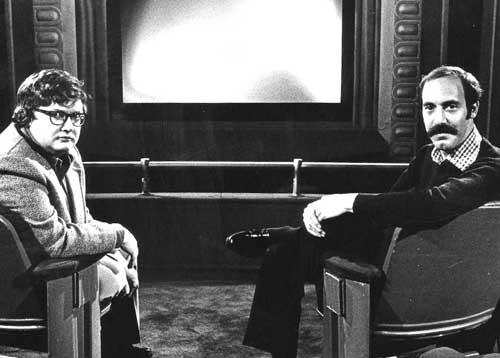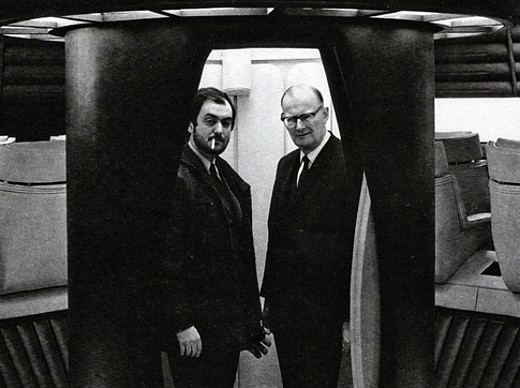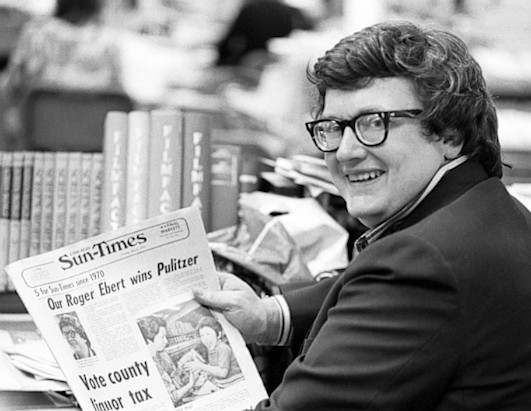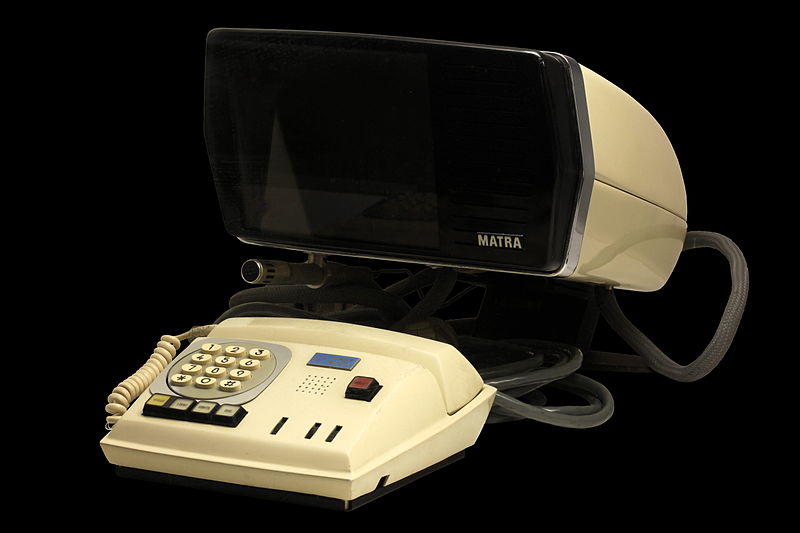Several excerpts follow from a 1987 issue of Omni, the science magazine published by leathery beaver merchant Bob Guccione, in which Roger Ebert was dramatically right and only a little wrong about the future of film.
____________________________________
We will have high-definition, wide-screen television sets and a push-button dialing system to order the movie you want at the time you want it. You’ll not go to a video store but instead order a movie on demand and then pay for it. Videocassette tapes as we know them now will be obsolete both for showing prerecorded movies and for recording movies. People will record films on 8mm and will play them back using laser-disk/CD technology.
____________________________________
I also am very, very excited by the fact that before long, alternative films will penetrate the entire country. Today seventy-five percent of the gross from a typical art film in America comes from as few as six six– different theaters in six different cities. Ninety percent of the American motion-picture marketplace never shows art films. With this revolution in delivery and distribution, anyone, in any size town or hamlet, will see the movies he or she wants to see. It will be the same as it’s always been with books. You can be a hermit and still read any author you choose.
____________________________________
With the advent of new. cheaper technology, countries that couldn’t afford to make films will begin producing films That express that country’s culture. It’s really an exciting possibility. As a critic, I see moves from Iran. North Vietnam, China, Morocco, Nigeria. But ninety-five percent of all the movies are made in the United States, Japan, Europe, Australia, and India. That means when large portions of the world’s population go to the movies, they see people who don’t speak their language or live in their country. This is going to change in a very big way.
____________________________________
Omni:
There are predictions that computers and robots will one day be used as actors in films and that computers will synthesize deceased film stars, to the delight of their fans. What do you think?
Roger Ebert:
That will be the day. That sounds like the very last thing in the world I would ever want to see. If in the future the technology does become available, there ought to be a law against it.
____________________________________
The cassette and disk revolution will be consolidated within the next fifteen years. That’s a key factor to remember. The use of prints-will be obsolete. Studios won’t send a print to a theater. The movie will be delivered by satellite via high-definition television technology. This will cause a revolution in the economics of motion-picture production because it will be extremely cheap both to film and to distribute a movie. Because a movie will be beamed in for just exactly where and when it is needed, the break-even point will be reduced substantially. I’m sure we’ll still have a blockbuster mentality in the future — movies that one hundred million people want to see. But directors will be able to make a movie that one hundred thousand or ten thousand people might see. Directors will be free to experiment and take on more offbeat and personal projects. By the year 2000 or so, a motion picture will cost as much money as it now costs to publish a book or make a phonograph album.•





